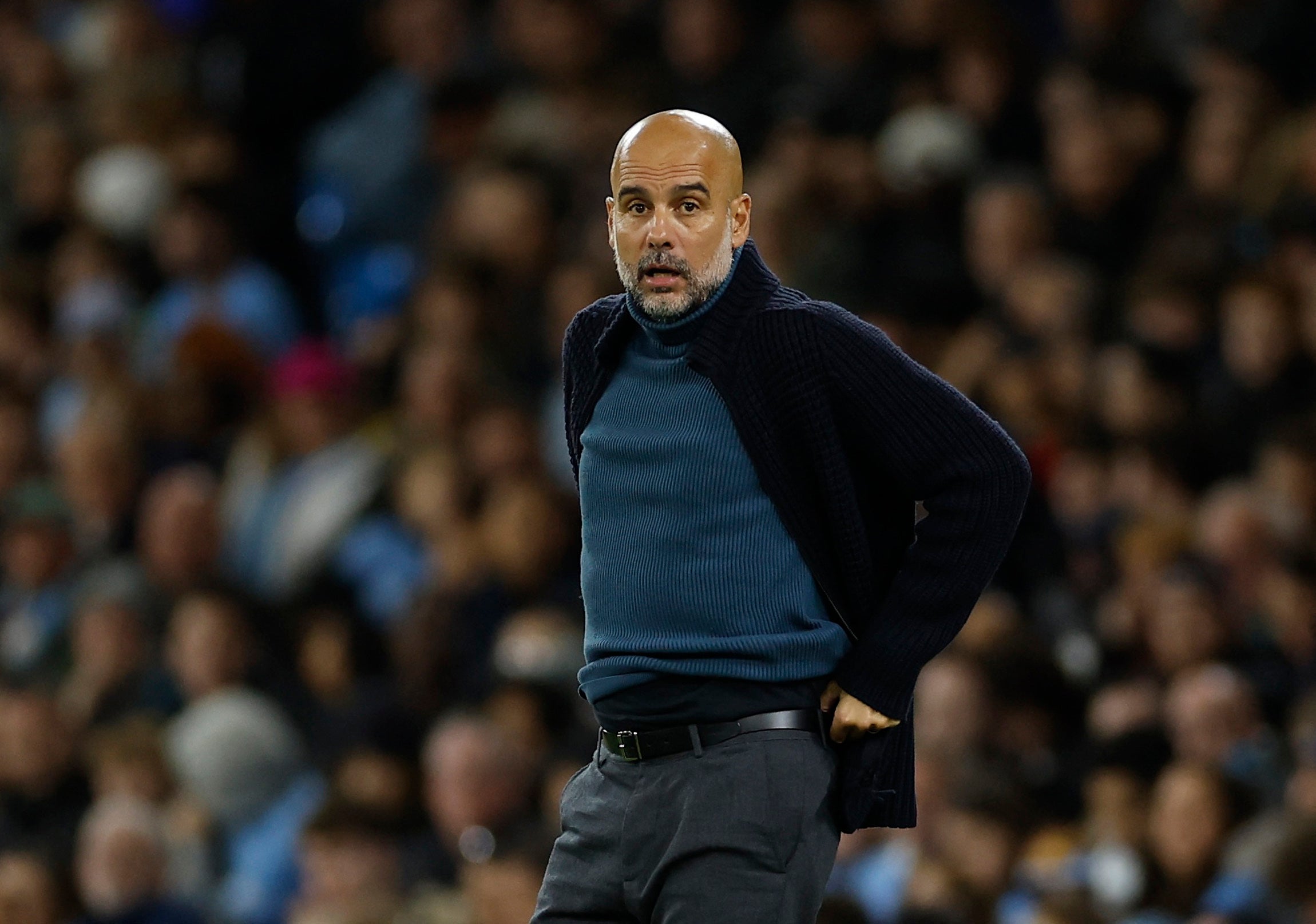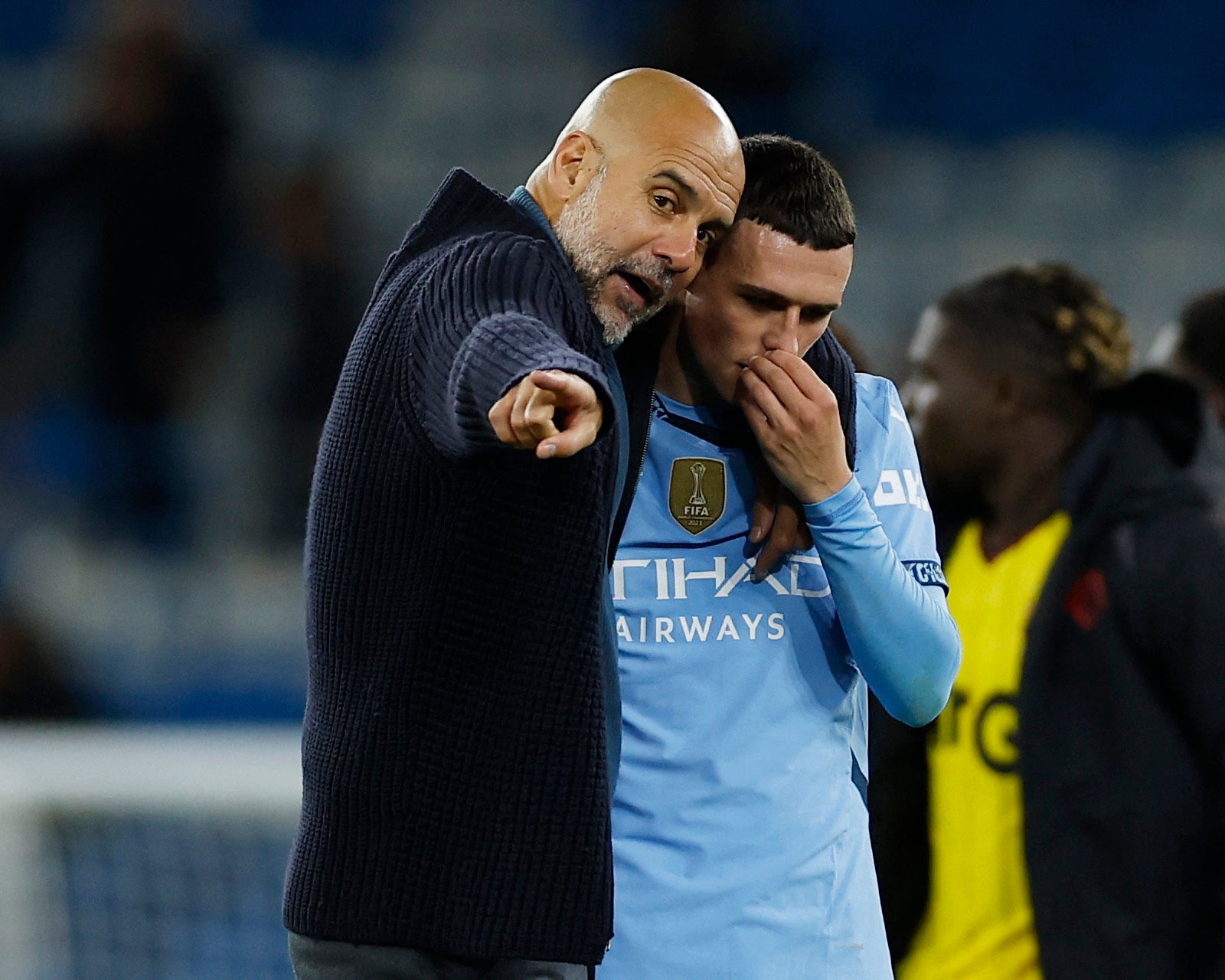The most successful manager in the League Cup’s history produced a damning admission. Manchester City will not waste their energy on the next round. Not, it should be said, out of choice. Pep Guardiola has won the League Cup four times, putting him in the company of Brian Clough, Sir Alex Ferguson and Jose Mourinho, due to an attitude that has reflects an insatiable desire to win, but also his determination to take it seriously.
Their four consecutive League Cup wins suggested it was a trophy worth winning, with a willingness to hoover up the lesser prizes has reduced the opportunities for anyone else to claim any silverware. Guardiola could rotate, but usually with the sense he would find a strong enough side to advance.
And now there has been a shift in approach. “The next round, I announce to you now, I play the second team,” Guardiola said. “We are not going to waste energy on this competition, for sure.”
It was not a decision he wanted to make. Something had to give. “The schedule is the schedule, we cannot handle it,” said Guardiola. If Rodri’s knee may be a victim of the ever busier schedule, so is the Carabao Cup; downgraded by decisions others made, a casualty of a Uefa power grab.
City faced Watford a mere two days after their exhausting extravaganza against Arsenal. Which was the indirect consequence of Uefa parking their tanks on the Carabao Cup’s lawn: City would have preferred to play on Wednesday but Manchester United are at home then and Greater Manchester Police do not want two such fixtures at the same time. And United’s midweek opponents are Twente, in the Europa League.
So City’s win over Watford came on a rarity in this round: an evening when the Carabao Cup was not competing with the start of the Champions or Europa Leagues. Only one of its four match nights – which became five after AFC Wimbledon against Newcastle was put back for a week due to the flooding of the Cherry Red Records Stadium pitch – was not alongside European games. Many have been in a fight for eyeballs: against AC Milan v Liverpool last Tuesday, City versus Internazionale on Wednesday, United in Europe this week.
If there was a logic for Uefa of giving the Europa League a separate week to kick off its season, it colonised the Carabao Cup’s territory. Which, in turn, meant some matches were shifted forward a week, put against Uefa’s glamour games. That may suit Sky Sports: lacking rights to the Champions League, knowing fewer people subscribe to TNT Sports. But it doesn’t benefit a competition with its own history and meaning.

With a culture of rampant expansionism, with Fifa eyeing a free summer for the Club World Cup and Uefa free midweeks to add to the European club schedule, the Carabao Cup can seem powerless to resist.
Uefa may be irritated by its presence anyway: few other European countries have an equivalent. It doesn’t boast the prize money available elsewhere. And yet the last 10 winners – City five times, Liverpool and United twice each and Chelsea once – have shown there is a combination of competitiveness and prestige. Some of the lower Premier League clubs and many a Championship manager can be faulted for being seemingly keen to beat an early exit. Not Guardiola.
“We never throw a competition,” he said. But his season could feature 75 matches and the proximity of the Watford game to the Arsenal draw meant he had to make nine changes; of the other two, Jeremy Doku was always going to come off at half-time and Kyle Walker was shifted to centre-back so he had less running to do.

The fourth round, at the end of October, is in its normal slot, but with a different context for City. By then, they are often almost assured of a place in the last 16 of the Champions League, able to plan to play weakened teams in dead rubbers. Now, with an eight-game group, a preference for a top-eight finish, the Carabao Cup seems the only place to unleash the reserves. Which could leave it football’s version of cricket’s One Day Cup, shorn of the big names, overshadowed by the introduction of the Hundred, its games clashing.
“It is a good competition to play the second team,” said Guardiola. “I’m not going to take a risk in this competition for a Premier League or and Champions League with this competition.”
That could afford more of a chance for others, and they may welcome it. It would be wonderful for one of the clubs starved of silverware for decades, such as Aston Villa or Newcastle, or who have never won a major trophy, like Brentford or Crystal Palace, to taste glory at Wembley.
But the danger is that this year the Carabao Cup has entered into managed decline. Not because of City or Guardiola, but because it is being sidelined, marginalised. This might be the slow death of the League Cup.

